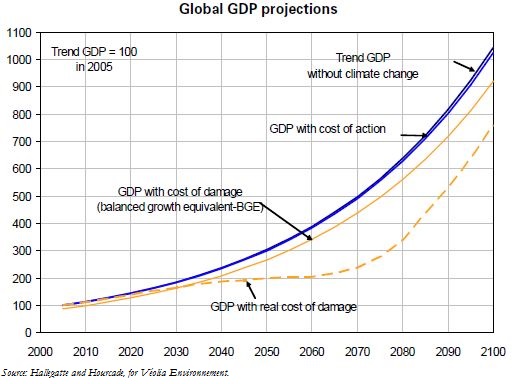Trésor-Economics No. 30 - The long-term economic consequences of climate change
In 2006 the UK Treasury published a study on the economic consequences of climate change (the "Stern Review on the Economics of Climate Change"). The main novelty of the "Stern Review" was to introduce economic analysis right into the heart of the climate debate, vigorously arguing that the damage caused by global warming could be 5 to 20 times greater than the sacrifices demanded of our economies in order to fight the greenhouse effect effectively. This widely publicised message has helped forge an international consensus on the need for urgent action.
The "Stern Review" diverges from the traditional rules of cost-benefit analysis, in that it compares the damage caused by climate warming with the costs of reducing greenhouse gas emissions. Some economists such as W. Nordhaus and R. Tol have strongly criticised some of the methodological choices underlying this analysis, notably the separation of the calculation of climate damage from the cost of action, as well as the unusually low discount rate applied (1.4%). With a more homogeneous approach to the costs and benefits of climate change prevention measures, a more orthodox discount rate and more refined treatment of the value of carbon and of uncertainty in his modelling, no doubt Stern could have headed off the objections raised without undermining his conclusions.
The validity of these conclusions largely depends on our capacity to control the costs of attenuating the greenhouse effect. According to the Review, a 25% reduction in greenhouse gas emissions in 2050 relative to the present day ought to entail only minor adverse consequences for the world economy, on the order of 1% of global GDP in 2050. The model on which this optimistic outcome is based assumes that priority will be given to using the least-costly options for cutting carbon emissions, thanks to appropriately calibrated pricing policies. Governments therefore have a responsibility to create a system of incentives based on economic instruments designed to minimise the global cost of climate risk abatement.
